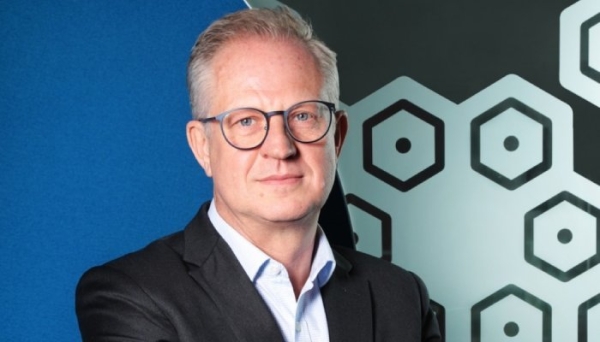
A major player of the global cosmetics packaging industry, Albéa has put sustainability at the centre of its product innovation strategy. To redefine tomorrow’s packaging, the group has launched various transformation projects over the past few years. Gilles Swyngedauw, VP Corporate Social Responsibility and Product Sustainability of Albéa Cosmetics & Fragrance, gave us more details.
Premium Beauty News – About 15 years ago, Albéa committed to developing circular packaging solutions with a low environmental impact as part of its CSR programme. How far are you in this process?
Gilles Swyngedauw – We have been following our ecodesign roadmap, which is focused on safety for human health and for the environment. We have added the transparency chapter to perfectly understand our raw materials supply chains. Other than the carbon impact, biodiversity is a key issue in terms of environmental impact.
We are still working hard on the circularity programme. And as for tubes, we have recyclability solutions for over 90% of our products currently on the market.
Now, things are more complex with cosmetics packaging, because it is smaller, much decorated, it often contains several materials, etc. We have been working with Citeo to understand what we should implement, so that it is efficiently detected and ends up in the right branch to be recycled. It is a huge project, but we have been making progress, and we will publish our conclusions during the second semester, most probably at the Luxe Pack Monaco show.
Premium Beauty News – There is also a huge demand regarding the integration of recycled materials. How do you cope with supplying difficulties?
Gilles Swyngedauw – That is another broad subject. First, there is quality: we are part of a working group on the quality of recycled packs in cosmetics, which is composed of peers and marketers. The idea is to understand health-related challenges and to make better recycled choices depending on the cosmetic applications. We only talk about mechanic recycling, because in terms of environmental impact, it is still the best solution, and it is making a lot of progress, performance-wise. Right now, this branch offers real aesthetic quality and satisfactory health security. Our work consists in selecting the materials rigorously – PET, PP and PE derived from mechanic, or even chemical recycling. Albéa considers using these two solutions, because they are complementary.
It is true that, as far as supplying is concerned, there is still a quantity issue. Plastic is still not much recycled. In addition, the packaging industry is not the only one concerned by the recycled option. The textile, car, even the building industry… Everyone is interested in this material mainly generated by packaging. So, our offering is getting broader, but not fast enough, compared to the demand, which is booming, driven by regulations.
Premium Beauty News – Is the biosourced material option also a priority?
Gilles Swyngedauw – If it is made of plastic, a biosourced material remains plastic. It needs to be recycled. So, biosourced materials will not solve all problems, and the first thing to do is rather to keep working on recycled materials and to make our products recyclable. We will never have enough fields and forests to replace all the plastic that is made from oil today. I mean, first, we need to enter a circular economy.
Premium Beauty News – Refills seem to be an efficient solution as regards sustainability. How have you been working on this?
Gilles Swyngedauw – The priority is to minimize the number of packs ending up in landfills. As a matter of fact, before thinking about refills, there is a lot to do to reduce weight, overpackaging, and “useless” packaging parts. As for reuse: it takes time to make consumers accept new systems. We have technical solutions, but the business model should suit brands, and the use should suit consumers. Our world is focused on convenience, so we have been working hard to innovate and make the gesture as easy as possible. We have been looking for intuitive solutions, in particular with jars, to be able to refill only the quantity needed. Some categories are more complex, like mascara, because they require changing everything, which is meaningless. The second most important aspect is to design refills which are light and perfectly protect the formulas, while delivering the right quantity… And they need to be recyclable, otherwise it is counterproductive.
Premium Beauty News – What is your view on the future of beauty packaging?
Gilles Swyngedauw – The main point is to work on circularity, first. In this area, there is still a lot to do, but European regulations will help us and have a significant impact. There are also many ideas that are not so good, but packaging manufacturers and brands have been doing a real collaborative job to boost valuable initiatives. One thing is for sure: we will only make it if we embark everyone on our journey.
